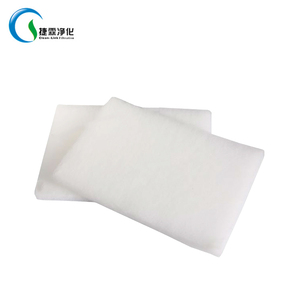Cotton Waste Fiber: An Overview
Cotton waste fiber, a byproduct of the textile industry, has emerged as a significant material in the quest for sustainability. As the industry grapples with environmental concerns, this once-overlooked resource is gaining prominence for its versatility and eco-friendly credentials. Cotton waste fiber encompasses a range of materials, including cotton gin motes, threads, and fabric remnants that are left over from the production and consumption phases of cotton goods.
Types and Sources of Cotton Waste Fiber
The types of cotton waste fiber vary, originating from different stages of the cotton lifecycle. Post consumer cotton waste comes from discarded textile products, while pre-consumer waste includes cotton gin motes and mill scraps. These materials, once destined for landfills, are now being repurposed into new products, reducing waste and supporting circular economies in the textile sector.
Applications and Reusability
Cotton waste fiber finds its applications in numerous fields. It serves as a raw material for creating non-woven fabrics, contributes to the production of paper, and is used in the automotive industry for soundproofing and insulation. Its reusability is a key advantage, allowing for the creation of recycled cotton, which can be woven into new textiles, thus minimizing the environmental footprint of cotton products.
Features and Material Composition
The composition of cotton waste fiber includes both natural and synthetic blends, depending on its source. Natural cotton waste is biodegradable and can be composted, contributing to soil health. Synthetic cotton waste, on the other hand, is often recycled into new fibers for various uses. The material's durability and absorbency make it suitable for a wide range of applications, from industrial to consumer goods.
Advantages of Cotton Waste Fiber
Utilizing cotton waste fiber offers numerous advantages. It supports waste reduction, promotes resource efficiency, and provides an eco-friendly alternative to virgin cotton. Additionally, it helps in conserving water and energy, as recycling cotton requires significantly less of these resources compared to growing and processing new cotton.
Choosing the Right Cotton Waste Fiber
Selecting the appropriate type of cotton waste fiber for specific applications is crucial. Wholesalers on Alibaba.com provide a diverse assortment, including light, dark, and mixed colors, as well as various grades such as cotton waste fiber suitable for repurposing into textile products or post consumer cotton for industrial applications. Bulk purchasing options cater to businesses looking to innovate with sustainable materials.
























 浙公网安备 33010002000092号
浙公网安备 33010002000092号 浙B2-20120091-4
浙B2-20120091-4